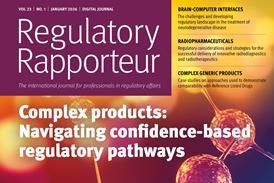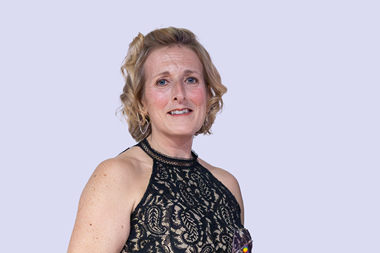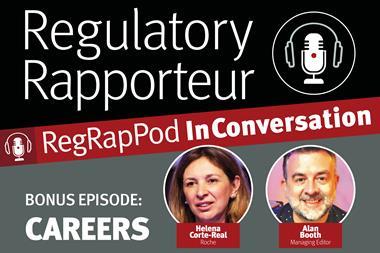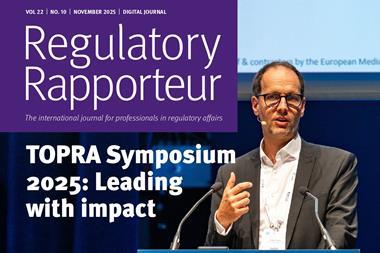This report is an overview of a session at the TOPRA Regulatory Careers Live 2025 conference in Dublin and is a useful summary for students, graduates and those hoping to enter the profession on the role of regulatory affairs in the healthcare industry.
Panellists:
Chair:
- Erik Smit, Client Development Manager, TOPRA
Speakers:
- Roz Sutton, Senior Vice President, Head of Regulatory, tranScrip
- Ronan Donelan, Policy and Stakeholder Lead, Health Products Regulatory Authority (HPRA)
- Mandy Daly, Founder of the Irish Neonatal Health Alliance (INHA)
- Neal Panting, Talent Acquisition Manager, DLRC
- Anne Nallen, Head of Global Regulatory Affairs CMC, CeVa Biotech Campus; TOPRA Past President
- Tom Melvin, Professor, Trinity College Dublin
- Simon Brough, Head of Business Development, Pharmiweb
Key points:
- Regulatory affairs professionals are the vital bridge between pharmaceutical companies and health authorities, helping ensure that patients gain timely access to safe, effective medicines
- The pharmaceutical industry is in a state of rapid transformation, driven by technological innovation, personalised therapies and evolving regulatory frameworks
- A career in regulatory affairs is dynamic and rewarding, offering life-long learning, problem-solving challenges and opportunities for international collaboration
- Success in this field demands a strong scientific foundation, but also adaptability and exceptional communication skills
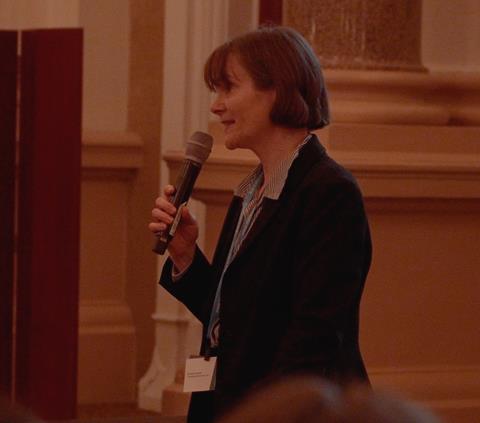
Roz Sutton delivered an eye-opening and inspiring presentation which peeled back the layers of regulatory affairs, a discipline which is often misunderstood but is utterly central to the success of the pharmaceutical industry and public health.
Roz began by grounding the audience in the broader context of the industry. Pharmaceuticals, she explained, span everything from high-tech lab creations to treatments with surprising origins, such as Exenatide, a diabetes drug derived from the venom of the Gila monster, a lizard native to Mexico and the southwestern United States. It was a powerful way to underline the creativity and scientific curiosity that fuel medical innovation.
Looking at the industry today, Roz painted a picture of an ecosystem in flux. The era of one-size-fits-all ‘blockbuster’ drugs is giving way to precision medicine, with therapies increasingly tailored to individuals. At the same time, artificial intelligence is transforming drug discovery, clinical trials and data analysis. Regulators are racing to keep up, drafting new frameworks for everything from gene therapies to digital health tools.
The role of the regulatory affairs in the wider healthcare industry
It is in this ever-changing environment that regulatory affairs professionals come into their own. Roz spoke about her role as a connector — an interpreter between the cutting-edge science of pharmaceutical companies and the rigorous standards of health authorities around the world. Far from being mere gatekeepers, regulatory professionals enable drug development and commercialisation by ensuring compliance, navigating complex regulatory landscapes and championing patient access.
Historical context was another powerful element in her talk. Roz reminded the audience of tragedies that shaped today’s regulatory systems, for example the 1937 Elixir Sulfanilamide disaster and the Thalidomide crisis of the 1950s. These sobering events led to the creation of modern regulatory laws and guidelines, highlighting the essential role of oversight in safeguarding public health.
She continued by demystifying what regulatory bodies do: approving clinical trials, evaluating drug marketing applications, inspecting manufacturing sites and monitoring safety long after a product launches onto the market. Regulatory professionals are central to all of this, not only interpreting rules but shaping them through scientific dialogue and advocacy.
The challenges and rewards of choosing regulatory affairs as a career
Throughout the presentation, Roz gave a vivid sense of what day-to-day life in regulatory affairs is like. It’s a job that demands agility, strategic thinking, negotiation skills and good communication. From drafting submissions to responding to complex queries or meeting with global health authorities, the role is intellectually stimulating and constantly evolving. And for those drawn to new frontiers, such as AI in medicine or patient-centric trial design, there are real opportunities to influence the future.
What made Roz’s talk especially engaging was how personal it felt. Her journey didn’t begin in pharma; it started with teaching English in China, a detour that sparked her passion for communication and cross-cultural collaboration. Combined with a pharmacology background and a drive to make a difference, it became clear that regulatory affairs was a natural fit. Today, she finds deep satisfaction in solving problems, working with global teams and playing a part in getting life-changing medicines to patients.
Roz was also refreshingly honest about the challenges of the work. It can be demanding: tight deadlines, complex regulations and the weight of responsibility are real. However, for those who thrive in fast-paced, intellectually rich environments, the field offers huge rewards.
Roz encouraged attendees to consider the many paths into regulatory affairs. While life sciences degrees are common, there’s growing recognition of the value brought by people with backgrounds in communication, policy and data science, and the field welcomes diverse skillsets. Internships, apprenticeships and industry events are all valuable entry points.
In closing, Roz concluded with a resonant message: stay curious, keep learning and don’t be discouraged by setbacks. Regulatory affairs isn’t just a job; it’s a purpose-driven career where your work can have a global impact. For anyone looking to make a difference at the intersection of science, policy and public health, it’s a field worth exploring.


